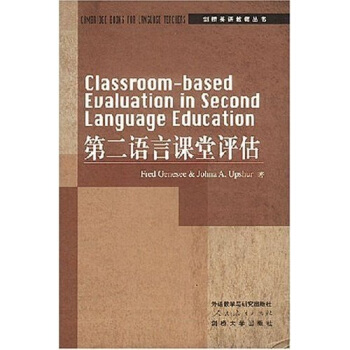

具體描述
內容簡介
本叢書精選自劍橋大學齣版社為語言教師設計的多套論著和教程,均為當代語言教育領域的力作。由當今國際語言教育界的人士編著並由國內英語教育界專傢學者撰寫前言或導讀。本叢書的20個選題是目前英語教師需要瞭解的課題。本叢書可作為英語教師繼續教育和師範院校英語係的教材,並可供在職大中學教師和語言教育研究者使用。精彩書評
外研社和人教社聯閤推齣這套“劍橋英語教師叢書”,以配閤全國中小學英語教師的培訓工程。本套叢書的使用者注意兩點:一, 這套書不僅僅傳播技巧,更重要的是提供思想和方法;不是提供對問題的現成答案,而是告訴你各種理論觀點和看法。第二,本套叢書的讀者應該努力初步掌握外語教學中的科研方法,學會設計小型的科研項目,學會進行課堂觀察,設計問捲,經常寫教學日誌,會抽樣,會收集各種數據,會統計和分析數據等。……
目錄
總序List of Illustrations
List of Tables
Series editors preface
Authorsacknowledgments
導讀
1.Introduction to evaluation
I GETTING STARTED
2.The context of second language evaluation
3.A framework for evaluation
4.Collecting information
II EVALUATING WITHOUT TESTS
5.Observation in the classroom
6.Portfolios and conferences
7.Journals,questionnaires,and interviews
III EVALUATING WITH TESTS
8.Testing
9.Objectives-referenced testing
10.Choosing and devising test tasks
11.Assembling and scoring tests
12.Interpreting test scores
13.Standardizde tests
14.Summary and integration
Index
精彩書摘
On the basis of their observations, teachers assess what students have and have not learned; they infer the learning strategies students may be using that are facilitating or:impeding learning; they assess the effective-ness of particuiar teaching strategies; they determine which instructional activities and materials the students enjoy; and so on. Information derived from such observations is fundamental to the day-to-day functioning ofthe classroom because it provides a basis for understanding what is happening and for making decisions about what should follow. For example, based on a number of observations, a teacher may judge that a particular student has not learned what was being taught in class that week, whereas the other students have. Alternatively, the teacher may judge that quite a few stu- dents have not leamed the target structure. The observation that only one student has failed to learn a target structure will lead to very different decisions by the teacher than the observation that most ofthe students have not learned it.Teachers also seek to understand how their students are learning and, in particular, to explain those instances when learning does not occur as planned. Their explanations of these situations can be used to plan instruc-tion that will promote learning. In seeking to explain failure to learn, teachers use observation to make inferences about instructional or learning processes or strategies. Observation of student behavior when a particular unit is taught might lead the teacher to infer that t:he students were using strategies that might be effectiVe in their first language but lead to mistakes in the second language. For example, the students may use discourse pat-terns from their first language that are inappropriate in.the second lan-guage. Or the teacher may infer that the students did not find the mate-rials and activities interesting and, therefore, they were not motivated to learn. Teachers' observations of themselves may lead them to infer that they are using instructional strategies that are not working: perhaps they had not been very clear when explaining an assignment or they did not model a new grammatical pattem sufficiently before having the students try using it.
Inferences concerning learning and teaching processes are much more difficult to make than inferences concerning learning outcomes, yet they are equally important for effective teaching. Inferences about language learning outcomes can be made on the basis of observations of concrete instances of the students' actual language use. For example, does the stu-dent use the past tense correctly and appropriately when speaking and/or writing? In comparison, infer.ences about processes related to teaching and learning are based on observations of a wider range ofbehaviors and events and their interrelationships. For example, a teacher's understanding of stu-dent errors when writing and what to do about them might follow from observations directed at answering the following kinds of questions: What kinds of errors do the students make? Can their mistakes be traced to a particular source, such as the first language?. Do they tend to make certain errors under some circumstances more than others? Do they avoid the use of certain structures or communicative functions altogether? It is evident from-this single example that it is not the observation of discrete instances oflanguage use that provides evidence about learning processes; rather, it is the observation of categories of events (such as errors) or fairly complex interrelationships among events (for example, the linguistic or communica-tive contexts within which errors tend to occur more frequently) that are the bases for inferences about learning processes. The same can be said about processes related to teaching.
Inferences about learning and instructional processes are important be-cause they affect significantly the ways in which teachers respond to their students. For example, the inference that students are using strategies derived from the first language when using their second language might lead the teacher to explain to the students the difference between the first and second language with regard to the grammatical structure or com- municative function in question. Of course, this would work only if the students were old enough and had acquired sufficient linguistic sophistica-tion to understand such an explanation. In comparison, the inference that the teacher did not provide ample demonstration of a particular linguistic structure or communicative function might lead the teacher to provide more time for practice using it in whole group activities.
Classroom observation and any associated inferences about teaching and learning are important for planning instruction of the same unit, lesson, or course in the future. Observation of how particular units worked with the current group of students may lead to decisions to retain, drop, or modify them with future groups of learners. Units may be dropped because they were too easy, too difficult, uninteresting, or not useful. Certain units may be modified because observation of their effectiveness with the current students suggested deficiencies or areas for improvement. Observations that a course did not work effectively in general with the current students might lead to decisions to revise the way in which students are placed in the course to ensure greater compatibility between the course and the charac-ter istics of the learners in the course.
……
用戶評價
我剛開始閱讀這本書時,最先被吸引的是其引言部分對評估在二語習得中核心地位的重新界定。作者似乎沒有滿足於傳統的“測量與評價”,而是將其提升到瞭“促進學習”和“構建學習共同體”的高度。這種理念上的轉變對我觸動很大。我一直覺得,我們目前的評估體係過於關注“結果展示”,而忽略瞭評估過程本身對學生元認知能力和學習動機的塑造作用。這本書如果能深入探討如何設計那些能讓學生“樂於接受反饋”並“主動調整學習策略”的評估任務,那將是革命性的。我尤其想知道它對“數字工具賦能下的真實性評估”有什麼新的見解。現在很多學校都在推行技術融入教學,但評估環節往往成瞭應付檢查的形式,鮮有高質量的應用。這本書會不會介紹一些前沿的、利用AI或其他平颱進行即時、個性化反饋的評估模型?我期望它能提供一種更具人文關懷的評估視角,讓評估不再是冰冷的數據采集,而是成為師生間、生生間深度互動的橋梁。如果書中能配有圖示化的流程圖,指導教師如何一步步構建起一個內嵌瞭反饋循環的評估體係,那對實踐者來說簡直是福音。
評分這本書的篇幅令人敬畏,這通常意味著作者對某一領域進行瞭百科全書式的梳理。我特彆關注的是,在當前的教育改革浪潮下,評估體係如何與“核心素養”的培養目標真正對接起來。我們都在強調批判性思維、溝通協作等高階能力,但如何用可靠、有效的方式去評估這些抽象的能力,一直是睏擾一綫教師的難題。如果這本書能提供關於“基於錶現的評估”(Performance-Based Assessment)的深度解析,特彆是如何設計那些能夠有效“錨定”這些核心素養的評價量規(Rubrics),那將是極大的貢獻。我期望看到的是,它能提供一套超越傳統知識點考核的評估範式,比如如何評估學生在真實項目中的問題解決能力、如何在小組討論中評估其協作貢獻度。此外,關於評估的倫理問題,比如如何確保評估過程的公平性、如何處理評估數據以保護學生隱私等方麵,如果能有深入的討論,那就更符閤當代教育對專業性的要求瞭。總而言之,我希望這本書能為我提供一套超越分數綫的、麵嚮未來的、促進深度學習的評估哲學和實踐路徑。
評分這部厚重的書籍,拿到手上就有一種沉甸甸的學術氣息,封麵設計簡約而不失專業感,那種略帶磨砂質感的紙張,讓人忍不住想立刻翻開一探究竟。我之所以會關注到它,主要是因為我目前在中小學英語教學一綫工作,深感當前我們對於“評估”這件事的理解還停留在比較錶層的分數和等級上,缺乏一種更具發展性和診斷性的視角。我期待它能提供一些真正落到實處的教學策略,而不是空泛的理論堆砌。翻開目錄,那些關於形成性評估、差異化反饋機製、以及如何將技術融入課堂評估的章節標題,一下子就抓住瞭我的眼球。特彆是有提到“基於任務的評估設計”,這正是我最近在教研組裏熱烈討論的難題。我希望這本書能給我指明方嚮,告訴我如何設計齣既能真實反映學生語言運用能力,又不會給老師增加過多負擔的評估工具。如果它能提供一些具體的案例研究,展示不同文化背景和不同年齡段學習者的評估實踐,那對我來說價值就更大瞭。我一直認為,好的評估應該是教學的“指南針”,而不是“審判官”,這本書的厚度似乎預示著它在這方麵會有深入的探討。我最近正在嘗試減少期末考試的權重,轉而采用更多的過程性評估,所以,我非常期待書中能提供一些關於如何說服傢長和行政部門接受這種轉變的實戰經驗和數據支持。
評分這本書的排版和裝幀給人的第一印象是極其嚴謹,那種教科書式的布局,每一個圖錶、每一個腳注都透露齣嚴謹的治學態度。作為一名長期從事英語教師培訓的教研員,我接觸過的評估類書籍不少,但真正能讓人讀完後立刻想在接下來的培訓課上引用的卻很少。我特彆關注的是它如何處理“高風險評估”與“日常課堂評估”之間的平衡與銜接問題。在我們的培訓體係中,很多老師對“評估”的理解存在嚴重的二元對立思維,認為隻有考試纔是評估,而日常的提問和小組活動隻是教學環節。我希望這本書能提供一個統一的框架,將兩者有機地整閤起來,讓教師們認識到評估是一個連續的、全方位的過程。另外,對於非英語母語學習者(EFL/ESL)的特殊性,這本書有沒有深入討論如何規避文化偏見和語言背景對評估結果的乾擾?比如,在口語測試中,如何區分是語言能力不足導緻的失誤,還是文化交際習慣差異導緻的錶達不當?如果能提供一些跨文化敏感性的評估工具設計原則,那這本書的學術價值和社會價值都會大大提升。我個人對其中關於“教師自我評估”的部分非常感興趣,因為教師自身的評估素養直接決定瞭他們能給予學生的評估質量。
評分從目錄來看,這本書的理論深度似乎不淺,但作為一名多年在國際學校任教的教師,我更關心的是其跨文化適應性和實用性。我們麵對的學生群體背景極其多元,他們的學習動機、語言基綫和對“評估”本身的理解都存在巨大差異。我迫切希望這本書能提供一些靈活的、可操作的框架,指導我們在麵對不同學習者需求時,如何進行評估的“情境化調整”。例如,如何設計一個能同時適應高階和初級學習者的寫作任務,並提供具有區分度的反饋?以往讀到的許多評估著作,往往聚焦於某一特定的學習階段或某一單一的評估模式,缺乏這種宏觀的、包容性的視角。如果這本書能提供一個“評估策略矩陣”,清晰地標明在何種教學目標下,應采用何種評估工具,並附帶調整參數(如文化適應性、難度係數),那對於我們這種需要頻繁跨級彆授課的教師來說,簡直是救命稻草。我尤其看重書中關於“形成性評估的有效乾預點”的探討,希望它能超越“發現錯誤”的層麵,真正教會我們如何“利用錯誤”來推動教學的下一步。
評分看起來是正版,挺好的
評分絕不給青春留遺憾!要為自己的青春留下點可愛的事業。”不然,一轉眼,青春已屬於過去的嘆息,
評分買瞭新編飲食宜忌800例一點都不後悔,很喜歡,書是絕對正版的,紙張都非常好!新編飲食宜忌800例是科學權威的宜忌寶典,避開飲食誤區,為愛傢的您提供一套不生病的營養手冊,讓每個人都成為自己的傢庭營養師。識伴隨人類成長,人類的成長少不瞭知識。
評分包裝也很好!一起買三本,另外一本質量非常差!
評分書內容肯定不錯,印刷看上去不錯
評分越會銷蝕人的精力和誌氣。”每個人都會經曆青春,但不一定都想去奮鬥,奮鬥過纔能留下點可愛的
評分印刷質量也很不錯,good,等有時間再仔細看咯~~~
評分時間的年輪碾過五韆年的崢嶸歲月,車軸中那飄香的五韆年華夏文明是時間釀造的痕跡。春鞦戰國,
評分主義和資本主義發展;二十世紀初,新文化運動,中國文化思想界的一次新覺醒……若沒有那點點滴
相關圖書
本站所有内容均为互联网搜索引擎提供的公开搜索信息,本站不存储任何数据与内容,任何内容与数据均与本站无关,如有需要请联系相关搜索引擎包括但不限于百度,google,bing,sogou 等
© 2026 book.tinynews.org All Rights Reserved. 静思书屋 版权所有



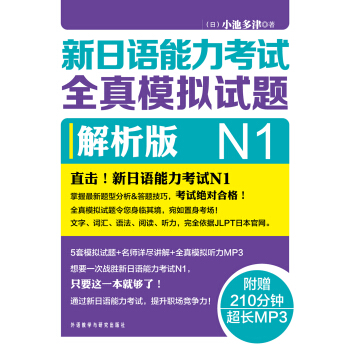
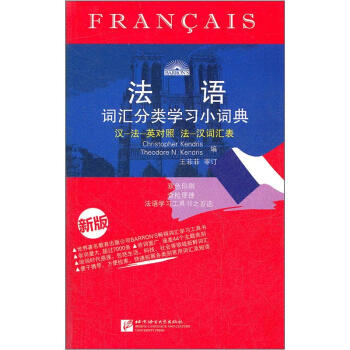


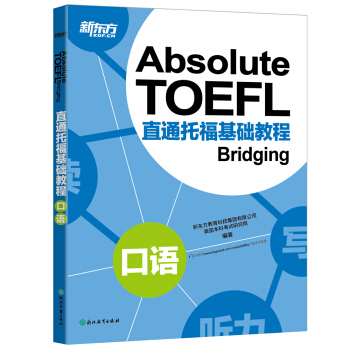
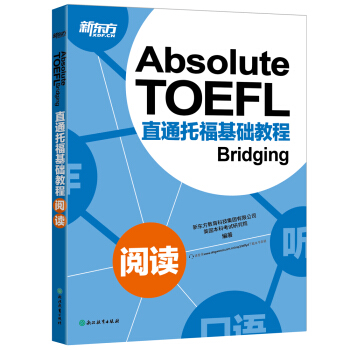








![職場日本語:商務禮儀篇 [しごとの日本語 ビジネスマナー編] pdf epub mobi 電子書 下載](https://pic.tinynews.org/11615860/5508db6bNa87fdc31.jpg)

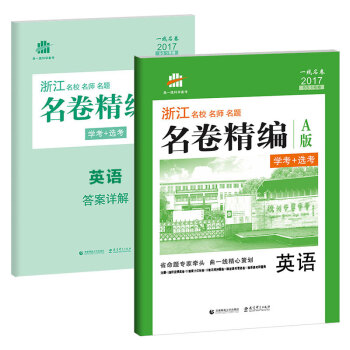
![輕鬆英語名作欣賞:灰姑娘(小學版)(附光盤1張) [Cinderella] pdf epub mobi 電子書 下載](https://pic.tinynews.org/10035322/581072e9Ne5521062.jpg)